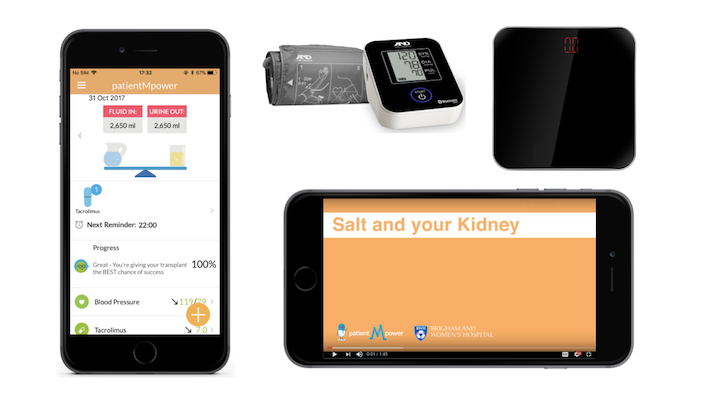 Dublin, Ireland-based patientMpower has inked a deal with Brigham and Women’s Hospital in Boston to deploy its personal health record and care management app to 30 kidney transplant patients. The announcement was timed with Kidney Week, the annual meeting of the American Society of Nephrology.
Dublin, Ireland-based patientMpower has inked a deal with Brigham and Women’s Hospital in Boston to deploy its personal health record and care management app to 30 kidney transplant patients. The announcement was timed with Kidney Week, the annual meeting of the American Society of Nephrology.
“We started with an original idea around medication adherence,” patientMpower CEO Eamon Costello told MobiHealthNews. “But when we started to unpack what was going on in the patient’s life, medication adherence is kind of a very siloed approach to a treatment plan. … So for the area we’re working with with Brigham and Women’s, kidney transplants, yes medication adherence is a very important component, but you really have to understand the entire patient journey and try and understand the different reasons people don’t take their medications. And sometimes they can be just purely forgetful and a medication reminder will work. But quite often it's to do with other educational or knowledge-particular things. So in that area it’s important to offer a much more rounded solution.”
The app is deployed along with a connected weight scale and connected blood pressure monitor. It facilitates patients monitoring relevant vital signs, offering them medication and treatment reminders as well as educational content.
The agreement isn’t a paid pilot, but it is a multi-year agreement under which patientMpower will work toward a paid arrangement as it proves its value.
“One of the things they do today is they have a very heavy paper burden in terms of documenting particular patients’ data,” Costello said. “For instance, for kidney transplant patients, their home weight management needs to be documented, their home fluid intake and urine output need to be documented. The patients are coming in with these pieces of paper and people are transcribing them, then analyzing them to see if there’s anything that needs to be followed up on. So we have that completely digitized, real-time communication, real-time analysis.”
The patientMpower mobile app and connected devices offer both efficiency improvements and, potentially, earlier detection of complications which could improve outcomes.
“There should be an operational savings in terms of removal of all of that paper overhead, and much more speedy visibility of problems with the patient data,” Costello said. “From the patient side of things, particularly in the early stages, if there’s an imbalance in the fluid input versus the urine output that could be a sign that the transplant is failing. The earlier that’s identified, the earlier the patient is brought in, the better. So potentially that could lead to earlier identification of problem cases.”
Kidney transplant is one of three areas the company is working on, along with kidney dialysis and idiopathic pulmonary fibrosis (IPF). The other platforms are similar in broad strokes, but draw data from different devices. The IPF intervention uses a connected spirometer. In data shared last week at the Connected Health Conference in Boston, patientMpower showed that in a small study, patients used the smart device 70 percent of the time, a high engagement rate for a population with an average age of 66.
The other platform, for dialysis, is not being tested yet as it requires IRB approval and, eventually, clearance from the FDA. Ultimately though, once the company has collected enough efficacy data, it intends to seek clearance for all of its therapeutics. That would allow them to move from offering a personal health record and reminders to offering actionable insights and advice to patients as well.
















